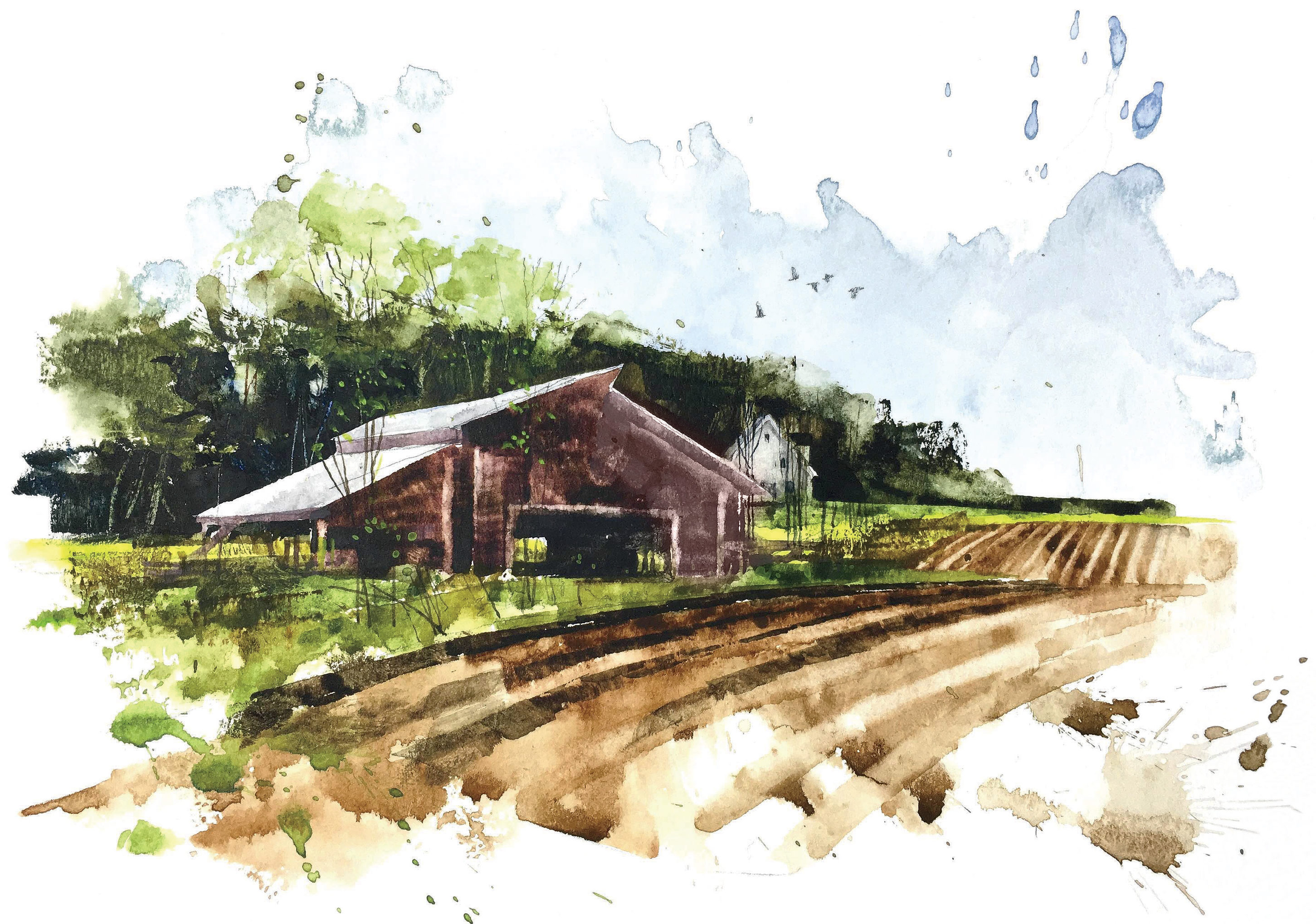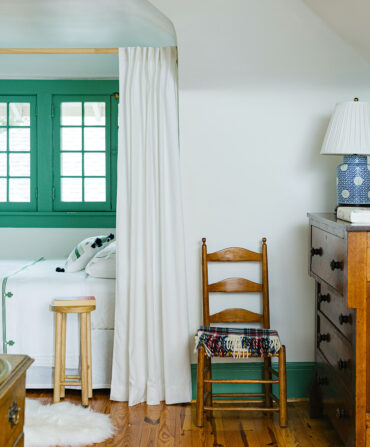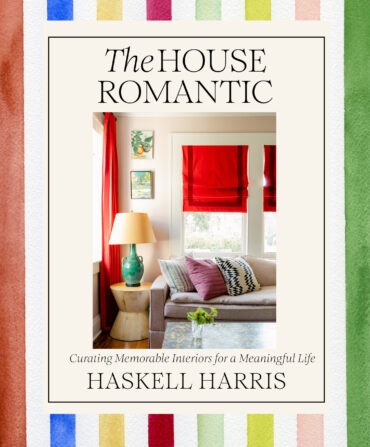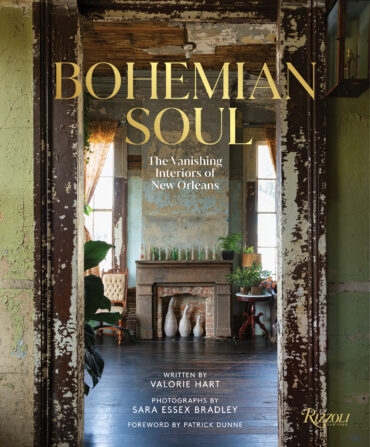Home & Garden
A Passage to Home
A writer returns to the family farm for a keepsake that reminds him of where he came from—and where he’s going

Illustration: Stan Fellows
My father grew up on a farm, and now he’s gone.
The farm is gone, too. We still own it, but we rent it out: an investment, not a way of life, the connection financial, not one formed through the daily pain of putting something into the ground and making it come back out again. No Thompson puts plow to row any longer, but the black, rich soil remains, enriched by Mississippi’s Big Black River. The land is called Egypt Plantation, a window into the striving and longing of whoever named it, because nothing about the farm suggests a plantation. My father grew up the son of a farmer, and he always took great pride in that, even as he tried hard to build a life for himself that had nothing to do with dirt.
I’m not a farmer. My brother isn’t, either. I write about sports, and he designs video games. None of my Thompson cousins are farmers. We rent the old house where my dad was born, too. At some point after my dad went to college, that house got a makeover, and the trash was stacked in a barn, forgotten in dust and shadow, and eventually the barn fell down, erasing the line between the plans of man and the nature that’s always trying to undo them. That’s how the old windows and beams and doors stayed, until a cousin who lives near the farm unearthed everything. Several Thanksgivings ago, he brought photographs of the reclaimed objects and asked people to select anything they wanted.
I chose a door.
II.
At the time, my wife and I were renovating a house near Oxford’s Courthouse Square. For years, we’d been looking for the right location. I love Mississippi. All my people are from here. Living on this soil helps me make sense to myself, and it occurs to me as I get older that the most important story in the world is the one we tell ourselves about ourselves.
I grew up working on a farm, like my father. That’s my story, and it is true. I worked for Cliff Heaton in Clarksdale, and if you ask him, he’ll tell you the same thing my bosses now will tell you: I worked my ass off. I’ve always been a grinder. But that’s not the whole story. I also grew up in a well-to-do family, with every conceivable mechanism of support, from two loving parents to the deep pockets needed to sustain any dream. I caught every break, and yet I remember those days in the heat, and I remember the hard work ever since, so the story I tell myself about myself is one of work. That is the part of my past, and my family’s past, that gave birth to my future. I grew up working on a farm.
The house rose a little each day.
One day I took a photo of it, a work in progress, and sent it to my boss, along with a note thanking him for helping me chase and reach the kind of dreams that once seemed impossible: I got to go out into the world and find the best of what it had to offer, while never having to dig up all my roots and leave them to rot. I’m lucky. Many Southerners my age have had to move to find work and build a life, landing in identical suburbs, on the outskirts of Memphis or Atlanta, or Birmingham, Charlotte, or Nashville. They might as well be in Phoenix or Chicago. Nothing about their surroundings seems like the past, which elicits two reactions, especially from my generation. Some are embracing the changing, evolving South—Mississippi as a hotbed of Vietnamese food is incredibly cool to me, for instance—while others cling to things that evoke their vanishing past. Many people are retreating into their memories, which are turning saccharine and narrow when removed from the places where those memories were formed, and so you have posters that read “Southern by the Grace of God,” a sentiment our grandmothers certainly felt but would never have been tacky and insecure enough to hang on their walls.
I wanted this door so that my father and his past wouldn’t just be an idea informing me and my new life, but a physical presence. Some days it seemed like a hopeful talisman: a reminder of where we’d come from, as a way of making sure we stayed focused on where we wanted to go. On other days, it seemed like a symbol of all that had been lost: Once we had a farm and a farmhouse, and now I had a door. Regardless, I wanted it, and I am a sentimental fool, so we made plans to drive to Bentonia and pick it up.
III.
We loaded the door into the back of my car and drove it home.
An artist in Taylor, Mississippi, who’d previously made me a desk out of reclaimed wood from the Delta, carefully pulled the nails and sanded it down to a size and shape that would work as a pocket door, in the hall right outside our bedroom. We handed it over to the builders.
The first time I walked into our finished home, I went straight to my father’s door.
I don’t know where in the farmhouse the door had been located, but I like to imagine it was a door my father used often, maybe the one from the room he shared with his brothers, or perhaps the one leading out of the kitchen, which smelled like cooking ham and frying chicken. I can see him pushing that door open with his toddler’s hands, and then with his powerful teenage shoulders. Maybe it led outside, where they went to work, and where he decided that he wanted a life that didn’t involve a farm. When I was growing up, our house was kept freezing cold, requiring a sweatshirt to go downstairs even in the middle of summer, and I suspect it was because he vowed never to be that hot again. I remember those summers on Heaton’s Farm, and how the air-conditioning in the cab of a truck seemed like an invitation to a life that didn’t involve crop dusters zooming low with chemicals, and hands cut open by the wood of the hoe. I want a farm door, as a reminder, but I do not want the farmhouse—or the work, or the life—that goes with it.
Two days before I sat down to write this, we received an e-mail about selling that land once and for all. Someone made a generous offer, and while the decision isn’t mine, I hope we don’t sell. One day, though, we will sell that land, and when it’s gone, the only pieces of it I’ll have left are the stories I heard from my father, and a door I like to think he used to slam when he’d head out into the heat to play.
Although maybe he never touched that door at all.







